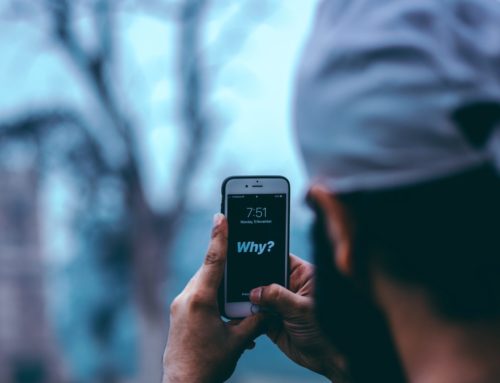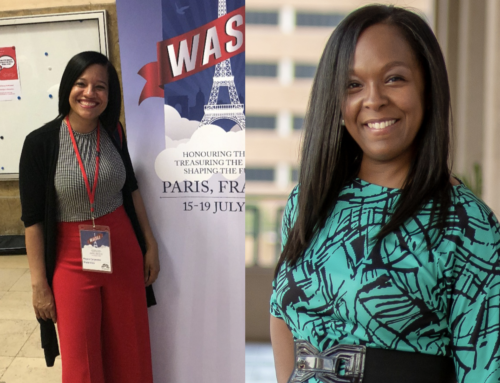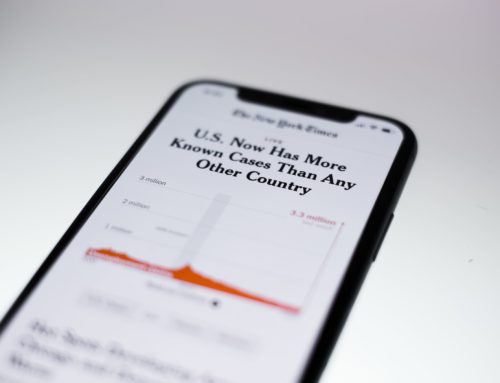Thriving Together
Breana Hall, CI and CT, CTACC
“We fight, not because we truly disagree, but rather because we fail to understand one another.” -Douglas Rice
Think back to a conflict you have experienced with another person during your work as an interpreter. Maybe it was your team, and you had a difference of opinion about how to convey a message, how to interact with the Deaf participant(s) or the hearing participant(s), or even simply where to stand. Our work involves countless decisions for every action, every interpretation, every job, and as interpreters it is likely that we will not always share the same
perspective as our colleagues and consumers. This is where self-awareness and a willingness to understand the viewpoints of others become critical tools in our ability to come together, work together, and thrive together.
Self-Awareness is Self-Care
“The story I’m telling myself is…”
Just as we listen to understand the needs of a child in order to best provide for them, so must we listen inwardly to understand the one person we are responsible for above all others. When faced with a conflict, our brains are fantastic storytellers – making it easy to get caught up in a mental motion picture in which we take the starring role. We often accept our perspective at face value, hardly bothering to dig beneath the surface to see if the story we are telling ourselves is absolute truth. This ability of our mind to deceive us is the foundation of many frustrations.
Brené Brown, shame and vulnerability researcher whose TED talk entitled “The Power of Vulnerability” changed the way many people approach their work and relationships, offers a simple sentence-starter to help us uncover the story we may be stuck in. “The story I’m telling myself is…” can be an effective prompt to distance yourself from your own perception of a situation and make room for alternate possibilities. I use this prompt often in my journal, especially when I’m hung up on an event that left me with uncomfortable feelings. This statement can then become powerful fodder for a conversation with the other person, when you are ready to learn what the situation looks like from their side.
Collaborative Problem Solving for Interpreters
As individuals, we can strive for all the self-awareness we can muster, but until we bring that awareness into our relationships with others – both work and personal – we limit our ability to connect on a deeper level, to truly see others and be seen, and to grow and evolve together as a community. Collaborative Problem Solving (CPS) is a tool heavily rooted in brain science, developed by Dr. Ross Greene for dealing with children who have otherwise been labeled “difficult.” It can be applied to any and all human interactions, in the workplace and elsewhere.
The CPS model has three basic parts:
- Empathy – To open, you may ask questions like, “How are you seeing this situation?” or, “I want to understand your perspective, will you tell me about your reasoning behind that decision?” Ask the other person to help you understand their perspective, and then use your best active listening skills. Ask follow up questions to help you better understand any part that’s unclear and restate what you’ve heard to confirm understanding. You do not need to agree with the other person’s perspective, your only job is to listen and try to understand.
- Share your concerns – Once you understand the other person’s perspective and they feel heard and understood, share your own concerns on the matter. Try hard not to negate or counter what the other person has said – this isn’t about one of you being right and the other one being wrong – the goal is to gain understanding of each other’s perspectives.
- Brainstorm – When you both feel heard and understood, ask, “What do you think we can do to take all perspectives into account as we address this?” Discuss possible solutions to construct one that’s mutually-agreeable and realistic. For situations that are unlikely to happen again in the future, this may just be an exercise in “How would we do this differently if we had the opportunity?” These discussions can be powerful for building trust between teams, strengthening creative problem-solving skills, and creating a culture of collaborative teamwork in your community. Think outside the box to engage consumers in decision-making and to raise the bar for open and transparent communication in our field.
Conclusion
Humans are relational beings, and as such, we need strong connections with others in order to learn, heal and grow. As you act intentionally to better understand yourself and your motives, and to better understand those around you, a miraculous thing can happen: your work will flow from pure intent to enrich others’ lives rather than to protect your ego or story. Not only does this have the potential to improve quality of life for you and those around you, it absolutely leads to greater work-satisfaction, stronger relationships, and increased trust between colleagues and consumers.
Resources
Ablon, J. Stuart. (2018, November 29). Dealing with a Difficult Colleague? Use Brain Science! Psychology Today. Retrieved from: https://www.psychologytoday.com/us/blog/changeable/201811/dealing-difficult-colleague-use-brain-science
Baer, Drake. (2015, August 26). One of America’s most beloved authors just told us her ‘number one life hack’ for lasting relationships. Business Insider. Retrieved from: https://www.businessinsider.com/brene-browns-biggest-life-hack-is-a-simple-phrase-2015-8
Brown, Brené. (2010, June). The power of vulnerability. TedXHouston. Retrieved from: https://www.ted.com/talks/brene_brown_on_vulnerability?language=en
Gallo, Amy. (2014, June 16). Choose the Right Words in an Argument. Harvard Business Review. Retrieved from: https://hbr.org/2014/06/choose-the-right-words-in-an-argument
Greene, Dr. Ross. https://www.livesinthebalance.org/
 Breana Hall, BS, CI and CT, holds her CI/CT from RID, B.S. in Interpretation from Western Oregon University and is a Certified Life Coach. She has led thousands of interpreters in preventing burnout and finding the passion again in their lives through developing habits of self-care. You can find her on Instagram @brighterfocus.
Breana Hall, BS, CI and CT, holds her CI/CT from RID, B.S. in Interpretation from Western Oregon University and is a Certified Life Coach. She has led thousands of interpreters in preventing burnout and finding the passion again in their lives through developing habits of self-care. You can find her on Instagram @brighterfocus.







Leave A Comment
You must be logged in to post a comment.